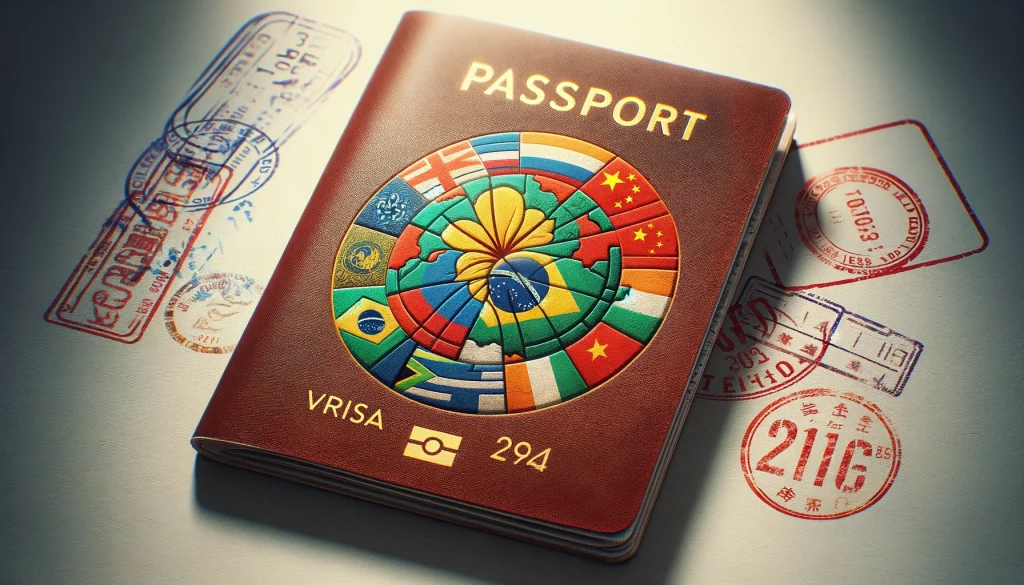In this article, we delve into the intriguing concept of visa-free travel within the BRICS nations—Brazil, Russia, India, China, and South Africa. Imagine a scenario where borders within this group are seamless, facilitating effortless movement akin to traveling within one’s own country. This could revolutionize the way people connect, businesses operate, and cultural exchanges flourish.
Advantages of Visa-Free Movement
Economic Benefits:
- Market Expansion: Visa-free travel could open doors for businesses to expand across new, large markets within BRICS, tapping into burgeoning consumer bases and diversifying market risks.
- Investment Inflows: The ease of movement would likely attract more foreign investment, fueling infrastructure development, technological advancements, and industry growth.
- Innovation and Collaboration: With fewer barriers, there’s potential for a surge in collaborative innovation and technology exchange, boosting productivity and competitive edges.
Cultural Benefits:
- Cultural Exchange: Freer cross-border movement enhances cultural exposure and exchange, enriching the tourism, arts, and entertainment sectors.
- Educational Opportunities: This openness would also promote educational partnerships and exchanges, elevating academic standards and global perspectives.
Trade Benefits:
- Trade Flow Enhancement: Lowering movement barriers could streamline trade, harmonize regulations, and bolster supply chains within BRICS.
- Regional Value Chains: The development of specialized production stages among BRICS nations could optimize regional resources and enhance global market positions.
- Negotiating Power: As a bloc, BRICS could leverage collective economic clout to secure better global trade terms.
Current Visa Regulations Among BRICS
To transition towards this vision, it’s crucial to understand the existing visa frameworks within BRICS. Some members have already established bilateral agreements allowing for easier travel for short stays through visa-free access or e-visa systems. However, these agreements vary, and some members still require traditional visas for entry.
Brazil
Currently, Brazilian visa policies allow citizens from certain BRICS and other nations visa-free access, while others still need a visa.
Russia
Russia offers visa-free access or e-visa options to several BRICS nations, easing travel for many but not all members.
India
India extends visa-free or e-visa privileges to a mix of BRICS and other nations for short visits, though some BRICS members still require a visa.
China
China allows visa-free access to citizens from a few BRICS countries, while the rest must obtain a visa.
South Africa
South Africa provides a relatively open visa policy to BRICS nations, offering various forms of visa relief.
Steps Towards Visa-Free BRICS
Achieving a truly visa-free BRICS requires collaborative effort and policy alignment. This includes:
- Harmonizing Visa Policies: Establishing common criteria and security measures that all BRICS nations can agree upon.
- Bilateral Agreements: Expanding existing agreements to include all BRICS members, promoting mutual travel freedom.
- Infrastructure and Security: Ensuring that the necessary systems are in place to manage increased travel without compromising security.
- Economic and Legal Frameworks: Aligning economic and legal systems to support increased movement of people and capital.
- Cultural and Educational Programs: Promoting initiatives that encourage cultural and educational exchanges as a foundation for closer ties.
A world where BRICS citizens move freely is a vision that promises economic, cultural, and social enrichment. While challenges remain, the potential benefits could pave the way for a more integrated, dynamic, and collaborative future among these emerging powers.

